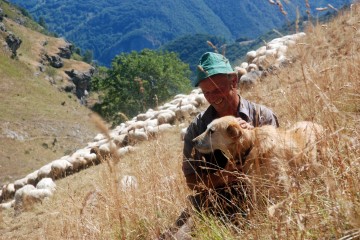A form of tourism showing little respect for the alpine environment may be in conflict with wolf conservation: the extension of the road network and the increase in visitor numbers at higher altitude are the basis respectively of habitat fragmentation and the direct disturbance of the species, in particular breeding sites. To avoid a negative impact on packs and individuals, the LIFE project WOLFALPS is developing an ecotourism program from the land management plans made by protected areas: first the breeding sites and areas that need to be the object of particular protection for the good of the species are identified, then ad hoc strategies are developed and promoted as to the use of the mountain resource to achieve two important goals, raising awareness among visitors regarding the presence of the predator and ensuring an economic return for the territory.
LIFE WOLFALPS is ecotourism
(A9, C4)
Ecotourism means sustainable tourism, the environment and the inhabitants of the host territory, whether they be members of the tourism industry (hotels, shops, craft shops, nature guides) or professionals like the shepherds in the pastures, whose work is a source of interest for a certain type of attentive, respectful, curious tourist – who wants to discover the mountain beyond the ‘smash and grab’ trip. The ‘friend of the Wolf’ formula of Ecotourism provides for the processing and marketing of typical products and merchandise (eg, types of bread and / or cheese) characterized by the ‘brand’ of the wolf and the project. A means for indirectly raising awareness in the general public and at the same time ensuring an economic return using a correct image of the wolf.
In addition to the ‘products’, tangible proposals will be made in the field of summer activities such as excursions to the pastures that are distinguished by good pasture management and winter such as snow-tracking (the search for footprints in the snow) on the trail of the wolf. Other initiatives in the summer camp program, a program of activities for schools and the creation of itineraries that include wolf in their name, on the model of ‘ the Wolf Hike ‘ in the Maritime Alps, and the promotion of wildlife areas dedicated to wolves – firstly the wildlife center “Uomini e lupi di Entracque” important and effective centers of awareness and dissemination of correct information on all matters related to the spontaneous return of the predator.
Finally, special campaigns to promote ecotourism will be developed, starting with support campaigns for some clearly defined individuals, wolves that have high ecological value because they are important players in the dispersal from the Dinaric Alps and the Apennines: ‘Adopt a special wolf.’


